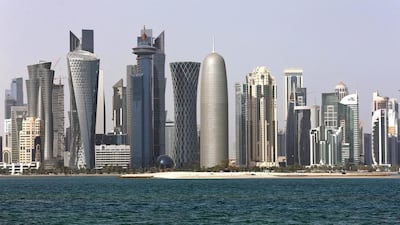Migrant workers employed in one of Qatar’s most opulent hotels are working in breach of labour laws and earning salaries below the minimum wage, an investigation revealed.
The Marsa Malaz Kempinski hotel, which is run by the chain headquartered in Switzerland, styles itself as an oasis of the European-style high life. li Perched on a man-made island in Doha, its royal suite offers a fairy-tale stay for £12,000 a night.
In its lobby and car park, where Ferraris and Rolls-Royces are not an uncommon scene. However for the staff who work as valets and lobby attendants, the picture is quite different. Migrants from the poorest parts of the world, including south Asia, east and west Africa and the Philippines, work under the scorching sun on 12-hour-long outdoors shifts only to earn the equivalent of £8 a day, an investigation by British newspaper The Guardian found.
Interviews with 19 hotel staff revealed multiple allegations of breaches of Qatar’s labour law, announced in November last year. The law officially established a minimum wage and ruled that employers will not be able to stop employees from leaving Qatar – as they did under the strict work sponsorship scheme called "kafala".
Workers at the Kempinski Hotels however were found to have paid recruitment fees as high as £3,160 to work there, becoming indebted and therefore easily pressured into working long hours and days off.
____________________
Read more:
Qatari embassy 'held Swaziland journalists'
Bahrain arrests two nationals paid by Qatar to influence elections
____________________
Some even said they would work for three or four months without a day off, but were fined five days’ pay if caught sleeping on duty.
“Have you ever stood for 12 hours straight?” one security guard said. “[At first] I couldn’t walk properly because I felt like my joint was dislocated. But I had to do it anyway, because I have to recover the money that I paid to the agent to come here … It feels like you’ve been punched in the head a thousand times.”
Kempinksi Hotels, which opened in 2015 and is popular with the Qatari elite, said it had launched an investigation.
Unlike many international chains, Kempinski manages its hotels directly rather than franchising out the brand. Most of its staff are employed through sub-contractors rather than directly by the hotel. “Marsa Malaz Kempinksi takes the allegations very seriously,” said a spokesperson. “We are committed to abiding by the highest ethical standards as an international luxury hotel operator. Equally, we expect all subcontracting companies to abide by these same standards. Due to the severity of these allegations, we have launched an investigation and will take appropriate remedial action as required”
International hotel chains are mushrooming in Qatar ahead of the World Cup in 2022. Doha's record on migrant worker rights has been under international scrutiny in the run-up to the event, yielding numerous reports of abuse in the construction industry.
Despite opening a local office in Qatar, the UN’s International Labour Organisation (ILO)has conceded that it does not have the tools to compel the local authorities to improve conditions. It has asked Qatar to end abuse of migrant workers. International trade unions have likewise failed to secure promised improvements in working conditions despite welcoming pledges made by the Qatari authorities.
There are an estimated 1.5 to 2 million migrant workers in Qatar, many of whom work in the construction industry and come from Asian countries.

